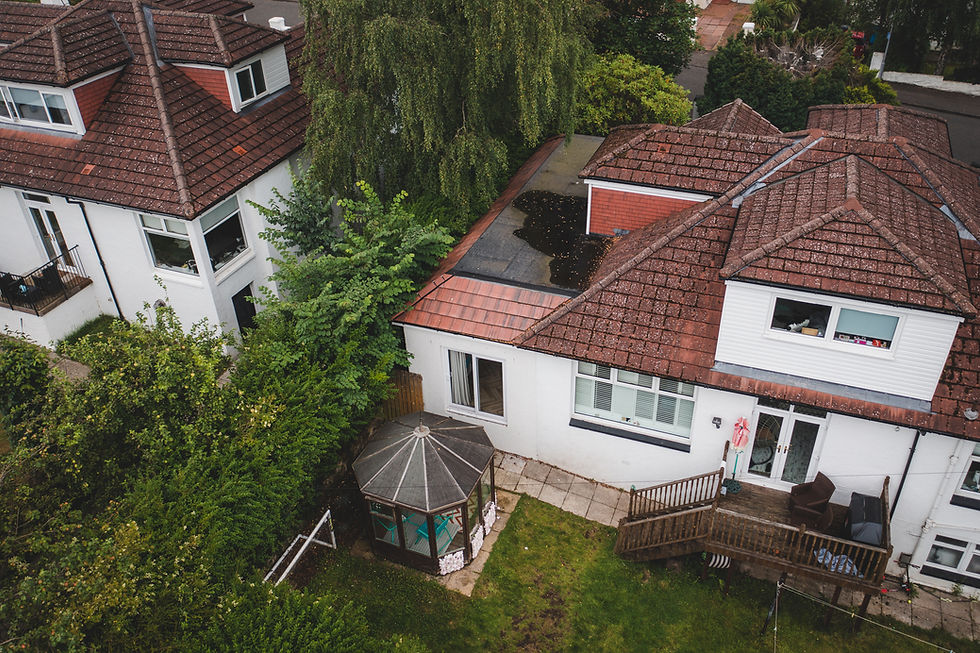What is Loft Conversion?
- David Dornan
- May 27, 2022
- 3 min read
Updated: Oct 25, 2023
A loft conversion is the process of converting an empty attic space into a functional room, typically by adding windows, floors, and stairs. A loft conversion can be a great way to add extra living space to your home without having to move house.
There are a few things to consider before starting a loft conversion, such as whether your home is suitable for a loft conversion, what type of loft conversion you want, and how much it is likely to cost. You will also need to obtain planning permission from your local authority before starting work on your loft conversion. If your home is ready for a loft conversion, then the next step is to decide what type of loft conversion you want. The most common types of loft conversions are dormer, hip-to-gable, and mansard.

What are the types of Loft Conversion:
1. Dormer loft Conversion
Dormer loft conversions are the most popular type of loft conversion and involve extending the roof of your home to create additional headroom. This loft exension will protrude from the slope of the roof, adding extra space and light to your loft.
2. Hip-to-Gable loft Conversion:
Hip-to-gable loft conversions involve extending the side walls of your home to create a gable end at the front or rear of the property. This type of loft conversion is best suited to terraced and semi-detached properties.
3. Mansard loft Conversion:
Mansard loft conversions involve changing the roofline of your home to create additional headroom. This type of loft conversion is often used on properties that are not suitable for a dormer or hip-to-gable conversion.
What are the costs involved in Loft Conversion:
The cost of a loft conversion will vary depending on the size and type of conversion you want. The average cost of a dormer loft conversion is around £30,000, while the average cost of a mansard loft conversion is around £40,000.
You will also need to factor in the cost of planning permission, which is typically around £100-£200.
What are the benefits of Loft Conversion:
There are a number of benefits to having a loft conversion, such as:
1. Increasing the value of your home:
A loft conversion can add up to 20% to the value of your property, making it a great investment.
2. Creating extra living space:
A loft conversion can provide you with extra living space, whether you want to create an extra bedroom, office, or playroom.
3. Improving the energy efficiency of your home:
Adding insulation to your loft as part of your conversion can help to improve the energy efficiency of your home and reduce your heating bills.
4. Making better use of your existing space:
If you are struggling for storage space in your home, a loft conversion can provide you with the perfect solution. You can use your new loft space to store seasonal items or convert it into a self-contained flat and rent it out.
Planning permission for Loft Conversion:
You will need to obtain planning permission from your local authority before starting work on your loft conversion.
The planning permission process can be a bit daunting, but there are a few things you can do to make it easier.
1. Use an architect or planning consultant:
If you are not confident in dealing with the planning permission process yourself, then it is worth using the services of an architect or planning consultant. They will be able to help you with the application process and give you advice on what type of loft conversion is likely to be granted permission.
2. Get advice from your local authority:
Your local authority should have a planning department who will be able to give you advice on whether your proposed loft conversion is likely to be granted permission.
3. Check if you need permission:
There are some types of loft conversion that do not require planning permission, such as hip-to-gable or dormer conversions. You can check with your local authority to see if your proposed conversion falls into this category.
If you do need planning permission, then you will need to submit an application to your local authority. The application process can take up to eight weeks, so it is important to factor this into your timeline.
Once you have received planning permission, you can start work on your loft conversion.
If you are not confident in carrying out the work yourself, then it is worth using the services of a professional builder. They will be able to carry out the work to a high standard and ensure that all the necessary building regulations are met.






Comments